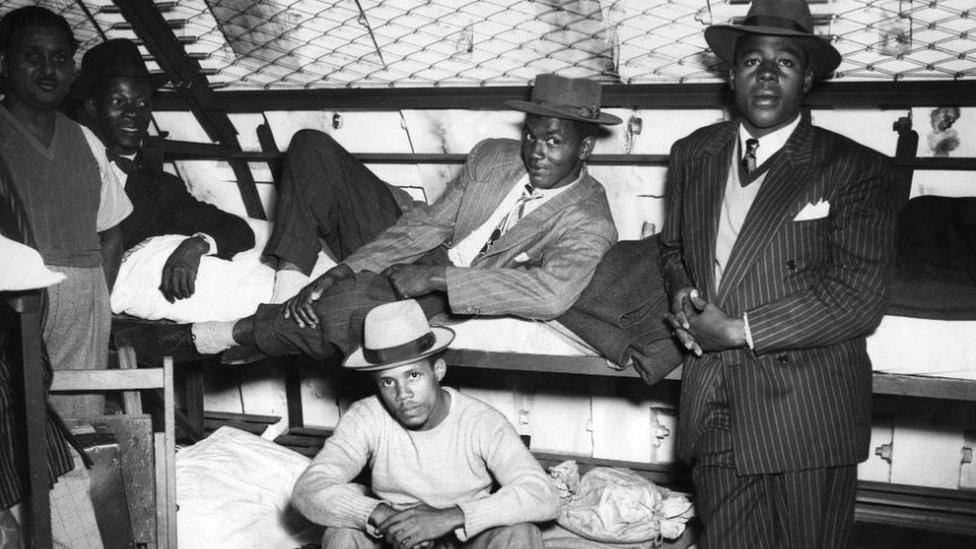Windrush: Coronation Street's Rhea Bailey explores family history
- Published
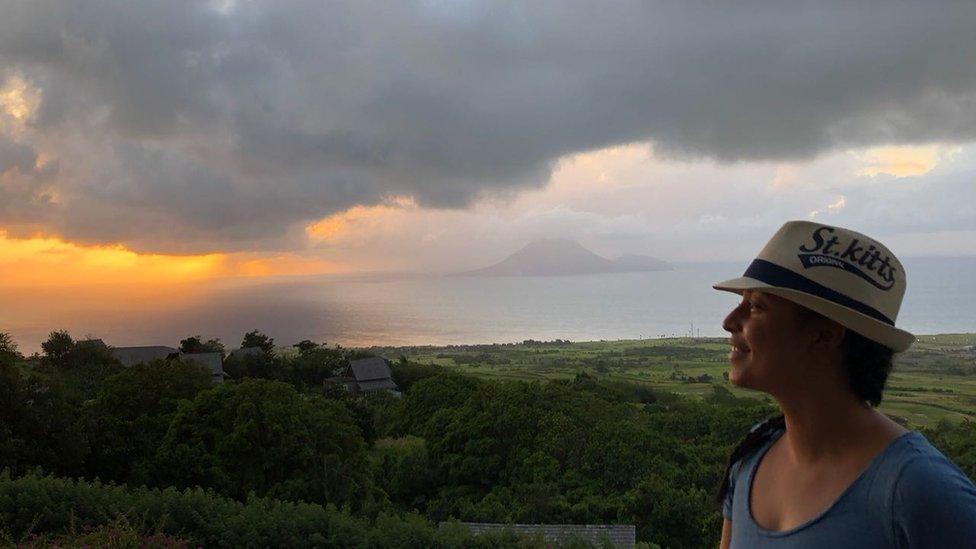
Actress Rhea Bailey, best known for playing Caz Hammond in Coronation Street, describes herself as being half West Indian and half English. To mark the 70th anniversary of Windrush, Rhea has been finding out more about her family history as part of a special report for BBC Radio 5 live.
In the 1940s, West Indians were invited from British colonies in the Caribbean to come to the UK to help rebuild Britain after World War Two.
Growing up, I always wondered why droves of people decided to leave paradise and come to jolly old England. I couldn't understand it.
It was only recently that I discovered they were invited here. Their trips were even subsidised. No-one stowed away. No-one sneaked into the country or begged to get in. They were invited.
My dad's parents emigrated from Saint Kitts in the 1960s. They came on the back of a promise of "good jobs" and "great opportunities".
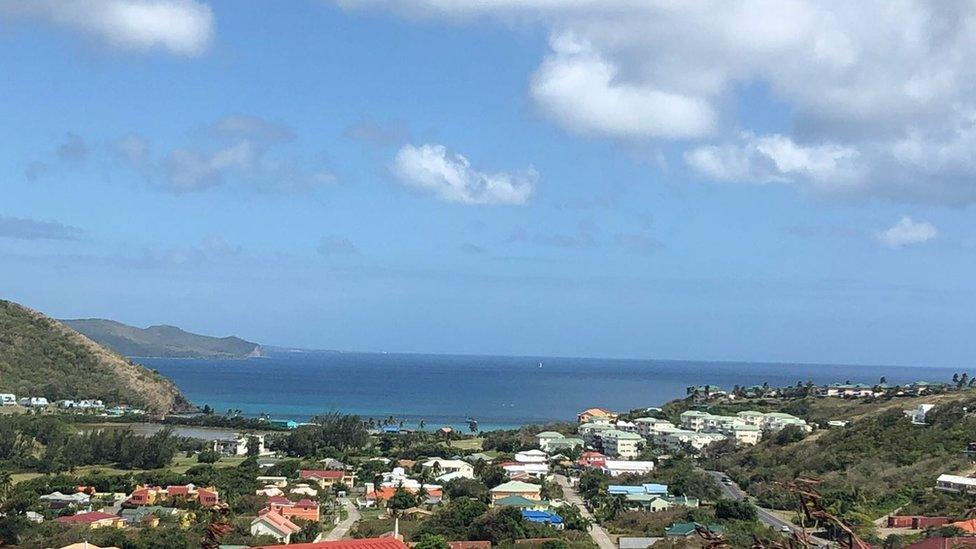
Saint Kitts, where Rhea's dad's family travelled from in the 1960s
Growing up in a British colony, they were always immersed in British culture.
My black grandparents enjoy a good cup of tea and a biscuit just as much as my white grandparents, who are Yorkshire born and bred. In fact, on a recent trip back to the island, the only request was that I bring rich tea biscuits and Tetley teabags.
But 50 years ago, the reality of building a life here was very different. Settling in Leeds, my grandmother said, they were met with prejudice.
They had only ever lived on a very small island in the heart of the Caribbean, surrounded by people who looked and talked the same as them.
My grandmother said she never regretted leaving Saint Kitts - to her, it was an adventure. She was bored with her tiny island and wanted to see more of the world.
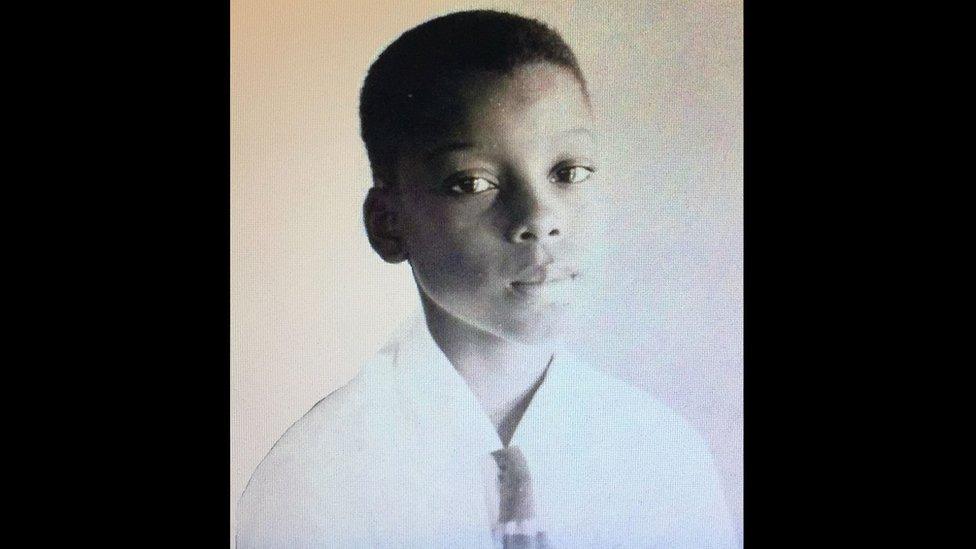
Rhea's dad, Chris, as a boy
My father had a scholarship to a private school, so he stayed behind with his grandma until he was 14.
In Saint Kitts, they would make fudge together (a tradition he has passed onto me) and he would go swimming in the sea before school.
Moving to England, he was reunited with his siblings but he was also met with prejudice, cruelty from teachers and racism from the police. I can't imagine what a culture shock it must have been.
My dad is an intelligent guy. In his 20s, he got a job working on some of the first computers in the country - back when they were the size of entire rooms. As a result, he drove a red MG convertible.
And although he loved it, he would get pulled over on a daily basis - just for being a young black man in a sports car.
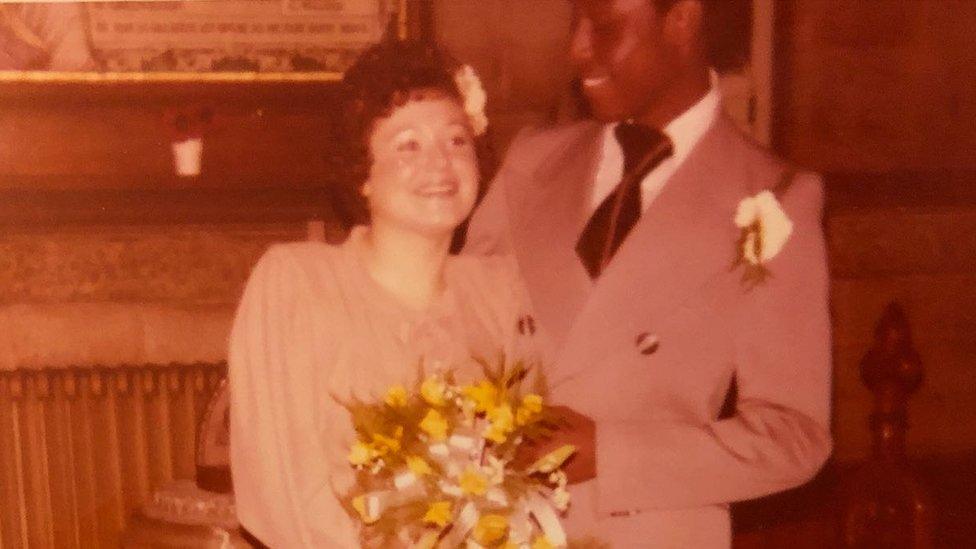
Rhea's mum and dad, Linda and Chris
My granddad worked on the trains until he retired. My grandma worked in a factory.
Their plan was only ever to stay until their kids had finished school and they had saved some money.
But the reality of living in a more expensive country where wages were not what was advertised and raising a family proved difficult. Plus, they had started putting down roots.
My dad met my mum on a night out when they were teenagers and they got married a few years later.
My grandparents ended up living in the same house in Leeds for 30 years, where I remember running around playing games in my vest and knickers because the heating was always on full blast.
Fifteen grandchildren later, they were finally able to retire back on Saint Kitts. The house they built is a great symbol of the fruition of all their hard work.
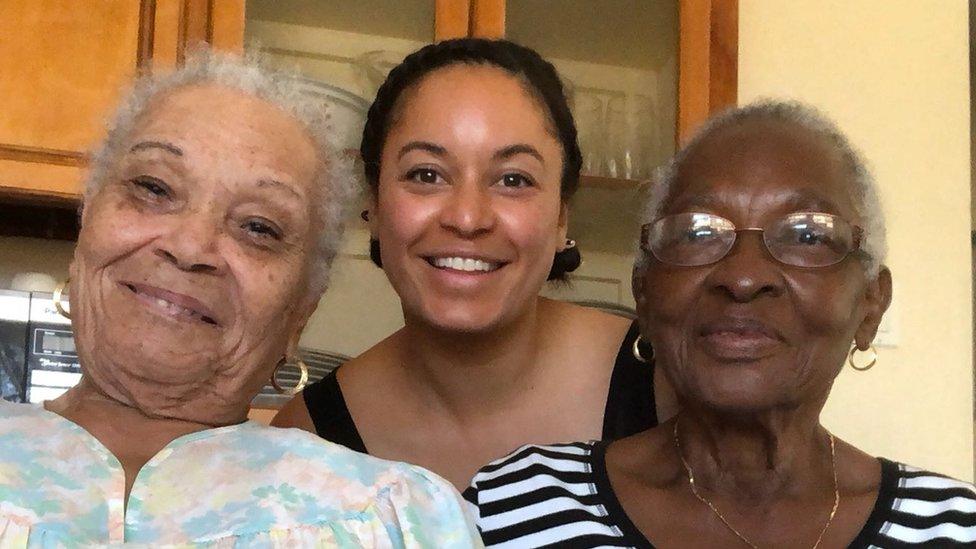
I asked my grandmother and my great auntie, Millie, if I could interview them.
They had some funny stories to tell. It was clear it had been an adventure.
But after the interview my great auntie Millie also told me a sad story about how when she had been baptised, in Leeds, the minister had asked her if she would go last because another man did not want to be in the same water as a black woman.
She also talked about how hard it had been for them to find somewhere to live, as no-one wanted black people in their neighbourhood.
What was interesting to me was how guarded and private they were whenever I tried to speak about the hard times. It was as though they were keeping things from me.
Clean slate
I notice it with my dad too. When I dig deep, he will tell a nice story or put a positive spin on it.
I can only surmise that my father and my grandparents chose not to tell me all of the things they endured, so that I would be able to live in this country as an equal - to start life with a clean slate and not be angry or bitter about some of the things they went through.
My parents and my grandparents did an incredible job of protecting me and my sisters from the racism they had received. I had a very happy childhood. I never felt out of place or unwelcome growing up.
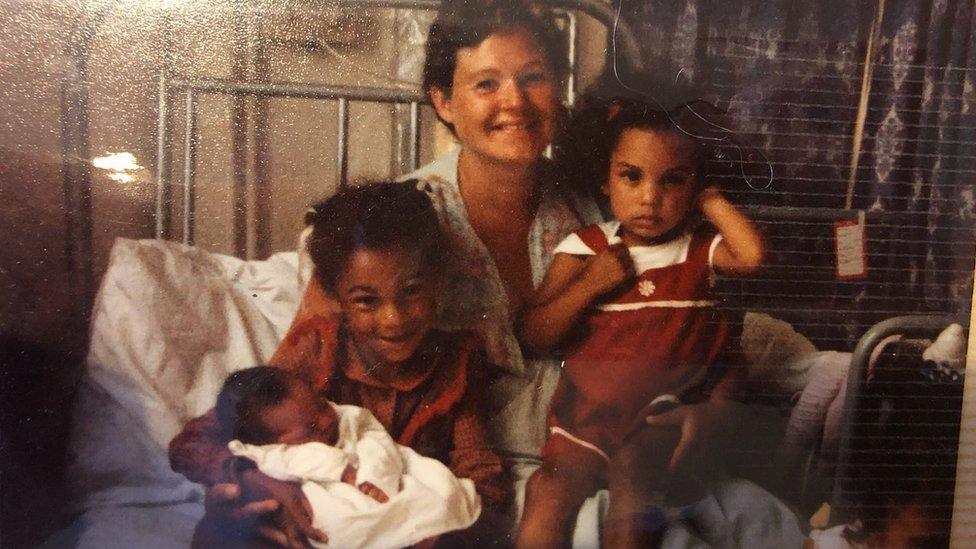
Rhea with her mum, Linda, and two sisters
My oldest sister is the Grammy award winning artist, Corinne Bailey Rae. My second sister is a Labour councillor. And I am an actress and writer, who gets to travel the world doing the job I love.
Everyone has their own reality of living in the UK, and though we were not rich, I recognise we have lived very privileged lives. I'm grateful to be British and thankful for the sacrifices my grandparents made for me.
In my opinion, those that traded paradise to come and help rebuild our country deserve medals of honour, and nothing less.
- Published19 April 2018
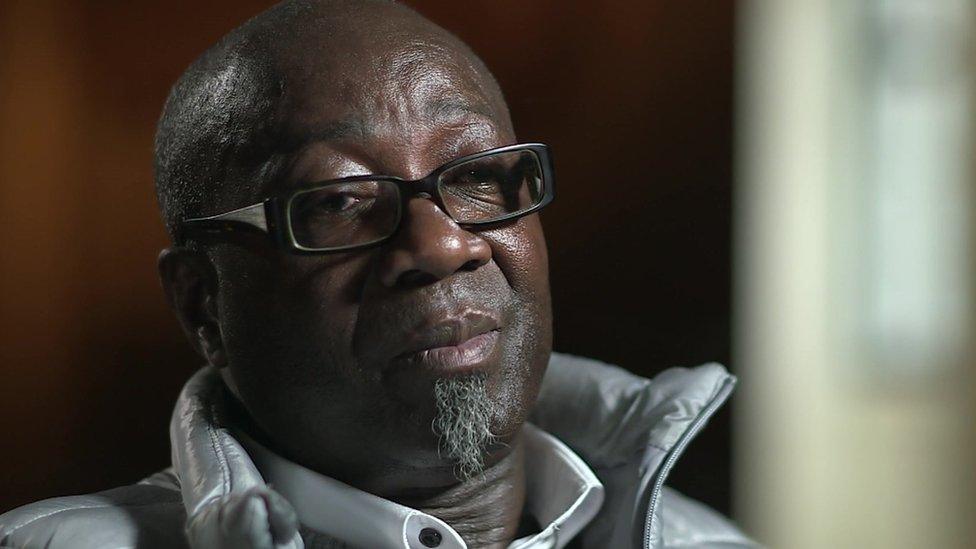
- Published21 June 2018
